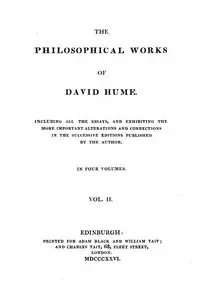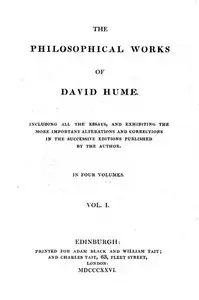"The History of England in Three Volumes, Vol. I., Part A." by David Hume is a historical account written in the mid-18th century. This comprehensive work covers the history of England, beginning from the invasion of Julius Caesar and continuing up to the end of King John's reign. The text delves into the ancestry and exploits of the Britons, highlighting the social, political, and military developments that shaped early England. The opening of the volume begins with a brief autobiographical note by Hume, outlining his literary passions and professional journey. He reflects on the challenges he faced in his career and the motivations behind his historical writings. Following this introduction, the narrative transitions into an exploration of the early Britons, describing their tribal societies and their customs during the Roman invasion. Hume emphasizes the complexities of early British history, detailing the impact of external forces, such as Roman expansion, on the native populations and setting the stage for the subsequent Saxon invasions. This opening portion serves to establish both Hume's authoritative voice and the thematic trajectory of the work as a whole. (This is an automatically generated summary.)

The History of England in Three Volumes, Vol. I., Part A. From the Britons of Early Times to King John
By David Hume
"The History of England in Three Volumes, Vol. I., Part A." by David Hume is a historical account written in the mid-18th century. This comprehensive ...
David Hume was a Scottish philosopher, historian, economist, and essayist who was best known for his highly influential system of empiricism, philosophical scepticism and metaphysical naturalism. Beginning with A Treatise of Human Nature (1739–40), Hume strove to create a naturalistic science of man that examined the psychological basis of human nature. Hume followed John Locke in rejecting the existence of innate ideas, concluding that all human knowledge derives solely from experience. This places him with Francis Bacon, Thomas Hobbes, John Locke, and George Berkeley as an empiricist.


















